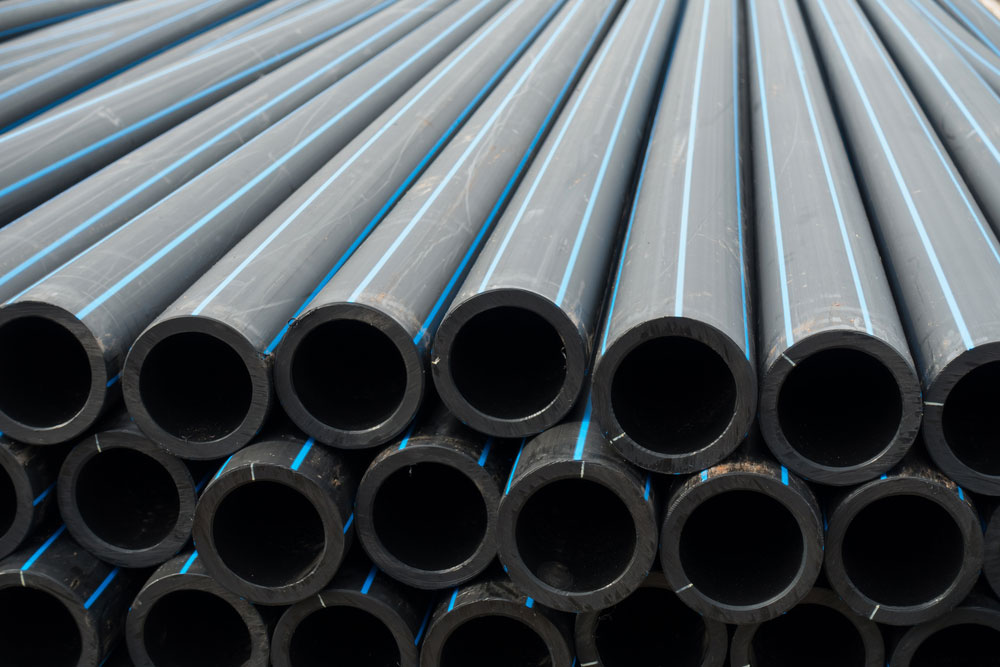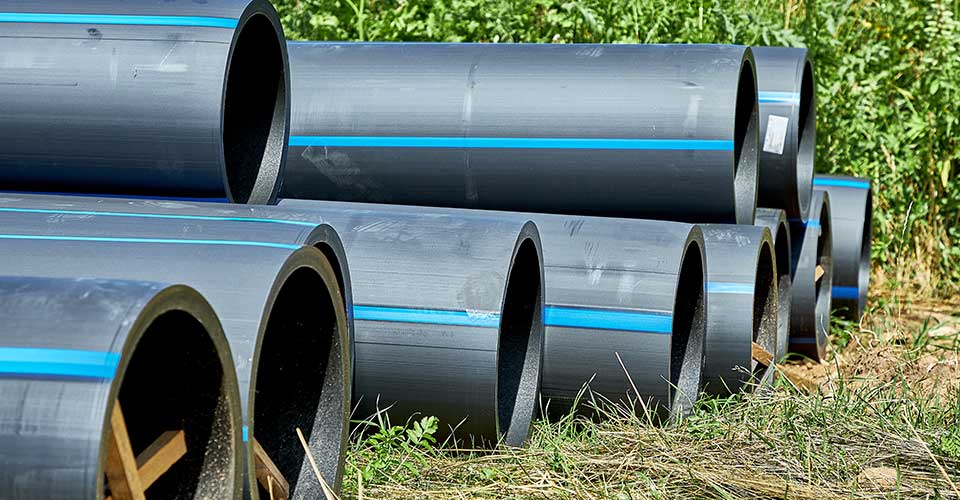In-Depth Look to hdpe pipe fittings Midland TX and Their Advantages
Recognizing the Secret Benefits of HDPE Pipeline for Water and Wastewater Management
The use of HDPE pipe in water and wastewater monitoring offers various benefits that merit consideration. Its outstanding durability and long life-span make it a favored option for several jobs. Additionally, the product's resistance to corrosion and chemical damages boosts its dependability in various settings. The advantages prolong beyond simply long life and resistance. American Plastics HDPE Pipe for Oilfield. Exploring its cost-effectiveness and ecological effect discloses also extra engaging reasons for its widespread adoption in modern-day infrastructure
Outstanding Durability and Long Life

HDPE pipe attracts attention for its exceptional resilience and long life, making it a recommended choice in water administration systems. Created from high-density polyethylene, these pipelines can endure considerable pressure and tension, ensuring trusted performance gradually. Their robust nature enables them to withstand severe ecological conditions, including temperature level variations and soil activities, which can cause various other products to stop working.
The life expectancy of HDPE pipelines often goes beyond 50 years, providing an economical remedy for towns and sectors alike. In addition, the product's light-weight residential or commercial properties streamline setup, reducing labor prices and durations. This durability lessens the requirement for frequent fixings or substitutes, even more enhancing its financial charm.
In water administration applications, the reliability of HDPE pipelines suggests fewer interruptions and improved service connection, making them essential to lasting framework growth. The mix of durability and longevity solidifies HDPE's function as a keystone in effective water administration solutions.

Resistance to Corrosion and Chemical Damage
While numerous materials yield to corrosion and chemical damages in time, HDPE pipelines display amazing resistance, making them suitable for different water monitoring applications. This strength originates from the molecular framework of high-density polyethylene, which is naturally non-reactive and does not corrode like steels or deteriorate from exposure to harsh chemicals. Consequently, HDPE is very efficient in settings with aggressive substances, such as wastewater systems that might have acids, bases, and organic solvents.
Additionally, HDPE pipes can endure ecological variables such as soil level of acidity and saline conditions, additionally improving their viability for varied applications (custom hdpe pipe manufacturing Midland TX). Their capacity to maintain architectural integrity over time decreases the threat of leaks and failings, which is vital in making sure the safety and reliability of water circulation and wastewater administration systems. As a result, the resistance to rust and chemical damages significantly adds to the overall efficiency and durability of HDPE piping services
Cost-Effectiveness and Financial Advantages
When considering the economic implications of water administration systems, the cost-effectiveness of HDPE pipes ends up being noticeable. These pipes offer reduced setup and upkeep costs compared to traditional products like metal or concrete. Their lightweight nature simplifies transport and setup, resulting in reduced labor expenses. Furthermore, HDPE pipes show a long life expectancy, typically going beyond 50 years, which converts to fewer replacements and long-lasting savings.
Furthermore, the resistance of HDPE to deterioration and chemical damages minimizes the requirement for costly repairs and substitutes. The pipelines likewise support reliable water flow, decreasing energy expenses connected with pumping systems. By alleviating leaks and water loss, HDPE pipelines add to considerable economic advantages for communities and sectors alike. Overall, the first financial investment in HDPE piping can produce substantial economic returns over the lifespan of the water monitoring system, making it a prudent selection for lasting facilities development.
Environmental Sustainability and Reduced Influence

Versatility and Adaptability in Setup
Due to their unique residential properties, HDPE pipelines offer remarkable convenience and adaptability in setup, making them suitable for a wide variety of applications. Their lightweight nature permits much easier handling and transport, reducing labor costs and installation time. HDPE pipes can be bent and formed to fit numerous surfaces and job requirements, which is specifically useful in challenging settings.
Furthermore, their resistance to deterioration and chemical damages permits setup in diverse settings without the demand for specialized protective coverings. The capability to fuse joints develops a continuous, leak-free system, enhancing the total honesty and reliability of the installment. HDPE's versatility likewise accommodates ground activity, lowering the danger of damages in areas susceptible to changing soil. On the whole, these qualities make HDPE pipes not just versatile however likewise a preferred option for water and wastewater monitoring systems.
Regularly Asked Inquiries
Exactly How Does HDPE Pipe Contrast to PVC in Water Monitoring Applications?
HDPE pipe offers remarkable versatility, resistance to deterioration, and longevity compared to PVC. Its lighter weight promotes less complicated installation, while its long life expectancy minimizes my explanation replacement costs, making HDPE a recommended choice in water administration applications.
What Is the Lifespan of HDPE Pipeline Under Typical Problems?
Under regular problems, HDPE pipes can have a life expectancy varying from 50 to 100 years. Their resilience and resistance to deterioration contribute to their long-lasting efficiency in different applications, making them a trustworthy choice for infrastructure.
Are HDPE Piping Recyclable After Their Life Span?
Yes, HDPE pipes are recyclable after their solution life. Pipe Supplier American Plastics Midland. They can be refined and repurposed into new items, substantially site minimizing environmental effect and advertising sustainability within the sector, making them an environment-friendly option for piping solutions
What Is the Installation Process for HDPE Piping?
The installment process for HDPE pipes includes website preparation, trenching, pipeline blend or mechanical signing up with, backfilling, and stress screening. Correct strategies assure a durable and effective system for carrying water and wastewater effectively.
Can HDPE Piping Be Used for Both Potable and Non-Potable Water Systems?
Yes, HDPE pipelines can be made use of for both drinkable and non-potable water supply. Their versatility, resilience, and resistance to rust make them appropriate for different applications, making sure risk-free and effective transportation of water in various contexts.